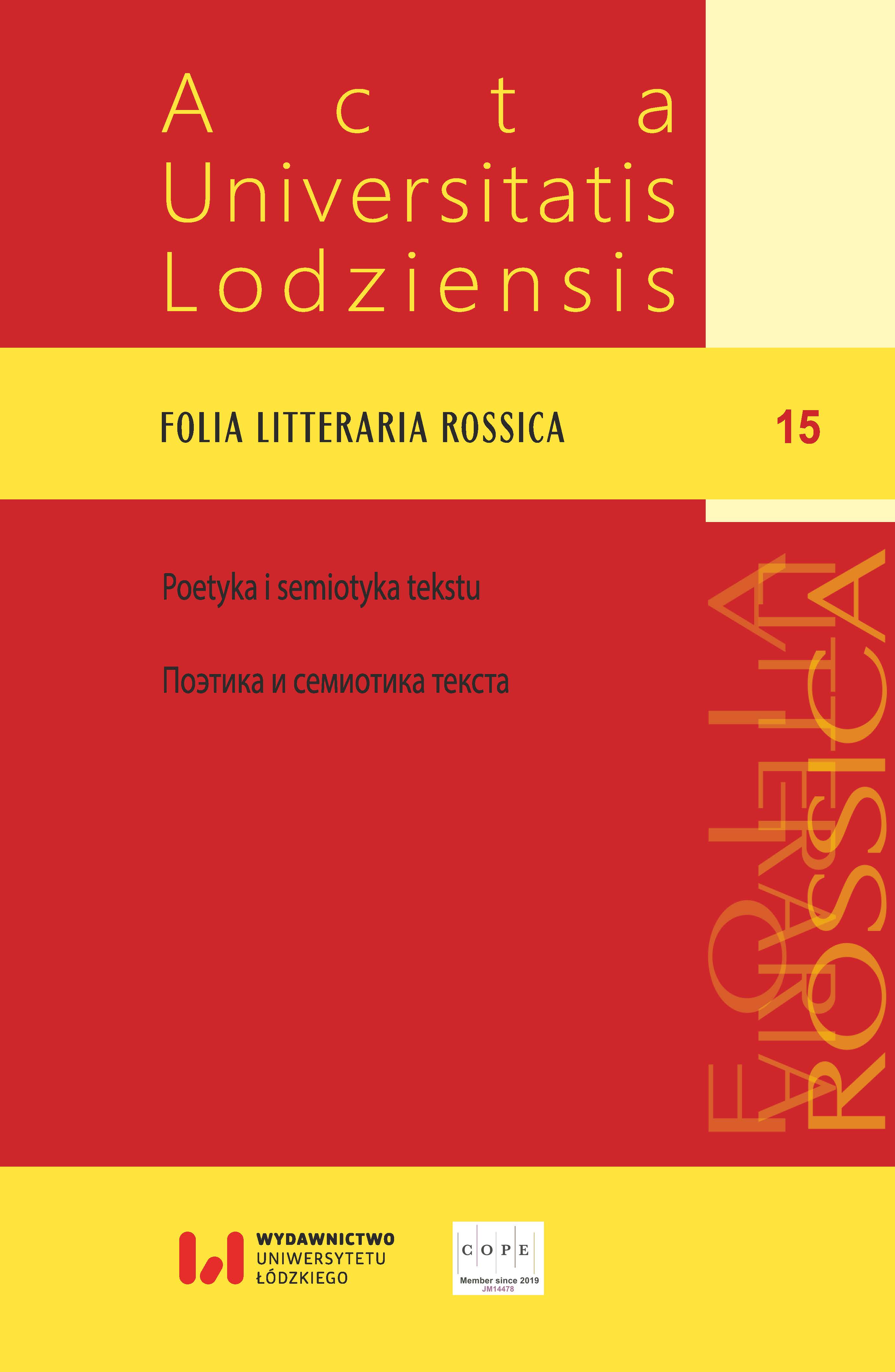Из опыта анализа гражданской лирики (Остров Змеиный Дмитрия Быкова)
An Experience in Analyzing Civil Lyrics (“Snake Island” by Dmitry Bykov)
Author(s): Aleksandr StepanovSubject(s): Literary Texts, Studies of Literature
Published by: Wydawnictwo Uniwersytetu Łódzkiego
Keywords: poetics; three-foot anapest; meter’s memory; Dmitry Bykov; civil lyrics
Summary/Abstract: The article analyses Dmitry Bykov’s poem “Snake Island”, an example of essential civil lyrics. The text was first published on the “Novaya Gazeta” website on February 26, 2022, two days after the Russian army’s intrusion to Ukraine and seizure of Snake Island. Writing his poem, the author proceeded from the early (luckily wrong) info on the death of the island’s defenders. This defined the heroic ring of the piece (which is determined by the epigraph alluding to an episode of the Waterloo battle described in Part 2 of “Les Misérables” by Victor Hugo) and its anti-emperial focus. The semantic associations are motivated by the intonation of the three-foot anapest with the AbAb rhyming scheme. The poem shows similarities with the texts written by Nikolay Ogarev, Nikolay Nekrasov, Nikolay Gumilev, Osip Mandelstam, Timur Kibirov. The toponym “Snake Island” hints on the key zoological metaphor whose negative sense traces back to the biblical Christian concept of the snake as an embodiment of Satan. Hence the monstrosity of this chthonic creature that can only be terminated if you throw a shell to its open mouth. Persona’s rejection of the motherland captured by snakes goes along with self-identification with the island’s defenders, Ukrainian border guards. A border guard is a maverick with regard to the protected area (Lat. marginalis – standing on the edge). And if his homeland is attacked by a “superpower” whose image is labeled by “a nameplate, a sheepskin hat and a scaffold”, then the reaction to this intrusion will only be an imperative utterance containing an obscene rhyming word. Moreover, if almost the whole text retains demarcation of the subjects, the final quatrain reveals subject syncretism. Alienable both ideologically and stylistically, a Russian man-of-war is attributed as “my”. Hence combination of a civic stance and a personal intonation, both filling the text of poetry with the consciousness of moral rightness.
Journal: Acta Universitatis Lodziensis. Folia Litteraria Rossica
- Issue Year: 2022
- Issue No: 15
- Page Range: 9-21
- Page Count: 13
- Language: Russian

